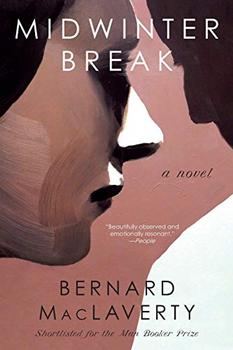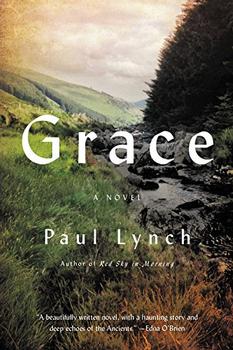Summary | Excerpt | Reviews | Beyond the book | Read-Alikes | Genres & Themes | Author Bio

At approximately 3:00 a.m. on October 12, 1984, a bomb exploded in the Grand Hotel in Brighton, a genteel and historic seaside town on the south coast of England. That night the hotel was hosting the British Prime Minister Margaret Thatcher and her cabinet who were in town for the annual Conservative Party conference. Five people died and many others were injured but Margaret Thatcher was not hurt.
In High Dive, Jonathan Lee approaches this real-life event through a fictional lens. He tells the story of the bomber, Dan, a young Irishman recruited into the IRA in 1978, at the age of eighteen. Dan is a loner, living with his mother in Northern Ireland, growing up during the Troubles – a time when the British Army was a constant presence on the streets of Belfast and many families had lost loved ones. By 1984, Dan has become a bomber for the IRA and is tasked with travelling to Brighton and rigging a bomb on a long-delay timer.
In contrast, another principal character, Freya, has grown up in Brighton where she and her father both work at the Grand Hotel. Freya has just left school and is uncertain about her future despite the urgings of her father, known as Moose, who wants her to take up a place at University. Moose, Assistant Manager at the hotel was once a feted teenage athlete and diver, and did not attend University himself. He is now a single and rather lonely father, half in love with his co-worker Marina, and intent on making the Conservative Party Conference stay at the Grand Hotel a success, and thereby, get promoted as General Manager. These three characters are richly imagined and their stories, in the weeks and days leading up to the bombing, form the meat of the novel.
Overall, High Dive is a cleverly worked story, full of acute observations of character and punctuated by a dark and enjoyable vein of humor. Fictionalizing events leading up to a disaster about which every reader has foreknowledge, allows Lee countless opportunities for dramatic irony. This is acknowledged, at one point, by Marina, who is interested in film-making and tells Moose: "Because sometimes the before is more interesting than the after, no? Heading towards the impact. What is beautiful about a dive? It isn't the splash, is it?" With the humor that provides so much of the richness of this story, the literally minded Moose thinks, "about telling her that a good dive didn't involve a splash," but there is a larger point being made here.
Lee's concern is with the everyday details and intricacies of his characters' stories leading up to the bombing, not their lives afterwards. To tease out the metaphor, their backgrounds are the events that have led them to the edge of the diving board. The part of their histories Lee presents in the novel are the twists and turns as they dive toward the moment of impact – the metaphorical splash, the literal explosion of the hotel bomb. Narratively, and implicitly acknowledged in his book's title, the journey or "high dive" is the story, not the aftermath.
Perhaps because the bombing is inevitable, the narrative's pace suffers. Such a level of anticipation of a major catastrophe is difficult to maintain over several hundred pages. And Lee's characters do not rush to their unknown fate. Instead they go swimming and fall in love. They ponder their futures while the reader wonders, which, if any of them, will even have a future by the novel's close. Some may be frustrated by the lack of a "splash" or any explanation of what happens to some of the characters beyond the explosion. But Lee does tie up Dan's story well and crafts an ending that mirrors his opening in a poignant and impressively satisfying fashion.
![]() This review was originally published in The BookBrowse Review in March 2016, and has been updated for the
February 2017 edition.
Click here to go to this issue.
This review was originally published in The BookBrowse Review in March 2016, and has been updated for the
February 2017 edition.
Click here to go to this issue.

If you liked High Dive, try these:

by Bernard MacLaverty
Published 2018
For readers of Colm Toíbín, a moving portrait of a marriage in crisis and a couple's search for salvation.

by Paul Lynch
Published 2018
A sweeping, Dickensian story of a young girl on a life-changing journey across nineteenth-century Ireland on the eve of the Great Famine.
Your guide toexceptional books
BookBrowse seeks out and recommends the best in contemporary fiction and nonfiction—books that not only engage and entertain but also deepen our understanding of ourselves and the world around us.